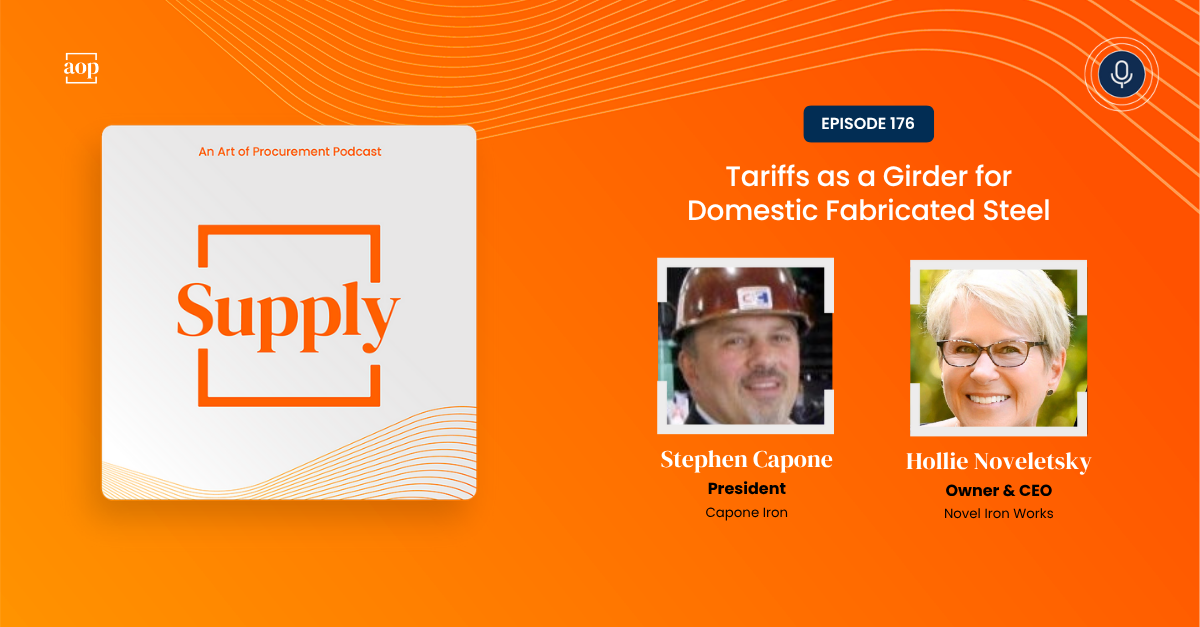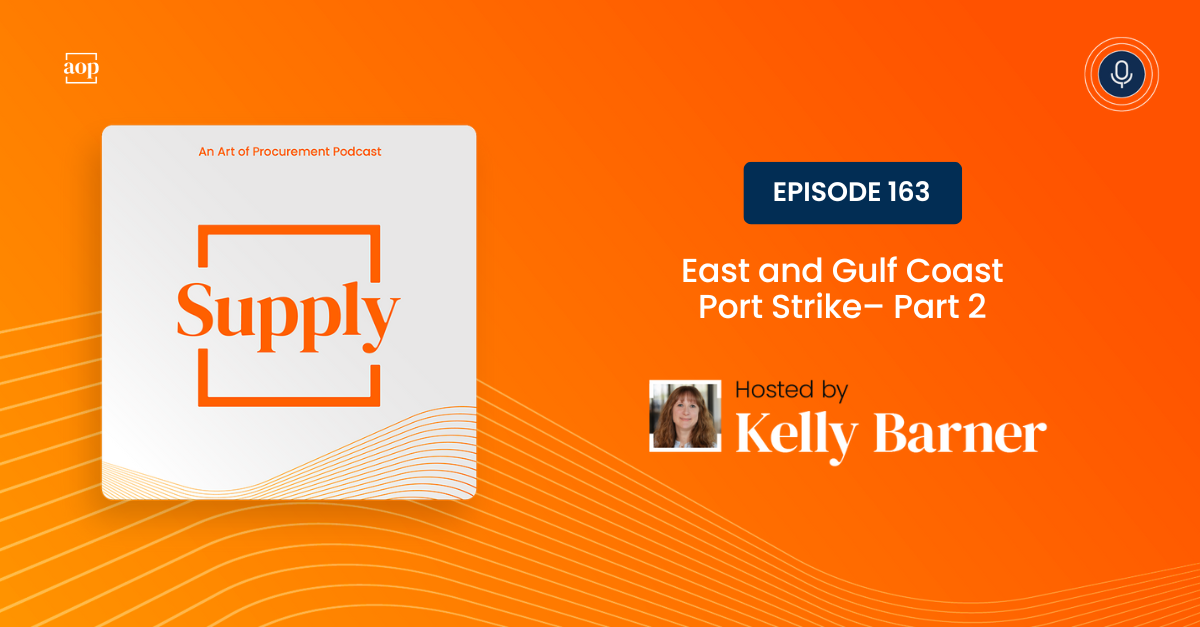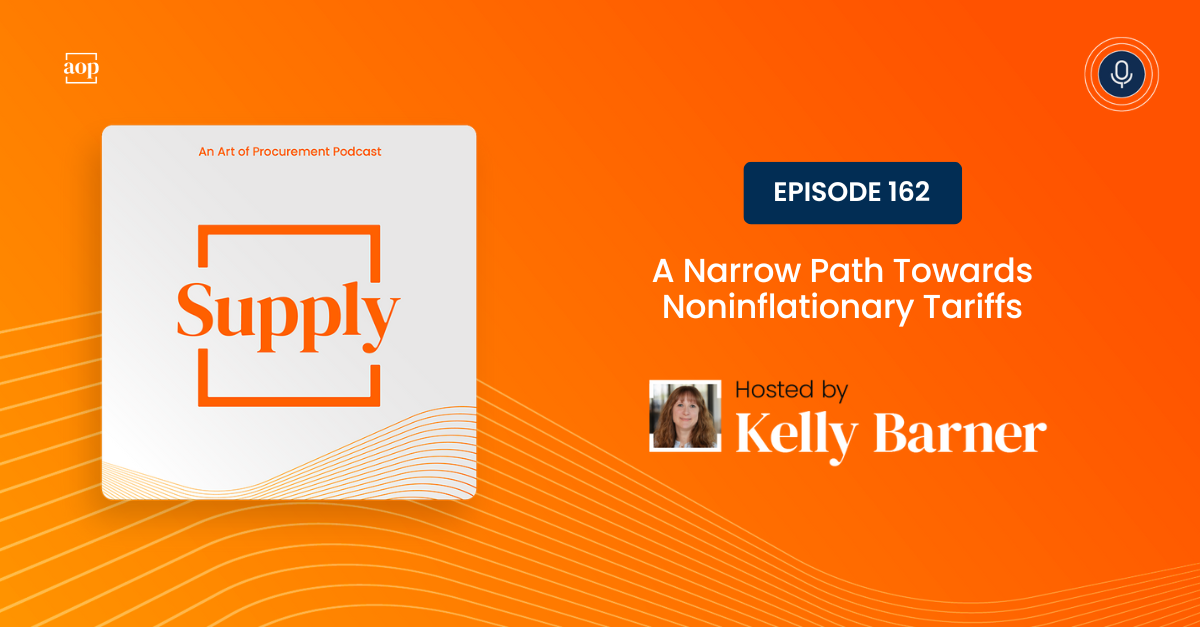
“We need to be able to tolerate this uncertainty and the fluctuations that we're undergoing right now and keep our eye on the long term goal of strengthening American manufacturing.”
-Hollie Noveletsky, Owner and CEO of Novel Iron Works
While many consumers and business owners feel uneasy about the Trump Administration’s use of tariffs, there is at least one group that views them as essential: steel fabricators.
Hollie Noveletsky, Owner and CEO of Novel Iron Works, and Stephen Capone, President of Capone Iron, have personally felt the negative impact that foreign competition and a lack of fair trade have had not only on their own businesses but on their overall communities. As Section 232 tariffs help incentivize domestic steel fabrication, they feel a sense of hope in protecting the security of American jobs, security, and infrastructure.
Domestic Fabricated Steel Strengthens American Positions
Before we dove into the conversation of why fabricated structural steel–and where it is produced–matters, I first had Stephen explain why we need domestic steel fabrication capabilities to really have listeners understand the impact this work has.
“We take those raw lengths from the mills and [work them into ready-to-use pieces.] Then they're shipped to the job sites where the field ironworkers will then erect the steel into structures, bridges, buildings, platforms, you name it,” he explained. “Any developed country relies on fabricated structural steel for their infrastructure, for their buildings. We can't rely on foreign imports for such a critical building component to this country.”
On top of reducing the supply chain issues that can come from relying on foreign fabricated steel, Hollie pointed out a potentially larger concern. Companies like Steven and Hollie's fabricate steel based on building schematics and designs. Having foreign countries work that steel increases security risk. As Hollie pointed out, “We don't want foreign countries having the schematics for our critical infrastructure, our military bases, our ship building bases, our government buildings.”
As the conversation continued, we went through other reasons for keeping these activities domestic, with Stephen giving a very simple answer. “It's the economic multiplier–good paying jobs, benefits, spending in local and regional economies, tax revenues that help fund the public construction projects, and then local and regional investment via tax revenues that fund community programs or regional and state programs.”
When the multiplier for this industry is 1.5, that means that for every $10 Million, $15 Million resonates through the local and regional economy–and that does a lot of good.
Competitive Factors Challenge Domestic Efforts–But Tariffs Can Be the Solution
During his first term, President Trump implemented Section 232 tariffs on steel, with a loophole for fabricated steel. Foreign competitors quickly realized they could circumvent the tariffs by simply drilling a hole in the steel and importing it as fabricated. This makes it even harder to keep production within the country’s borders.
China, Mexico, and Canada are the greatest sources of competition for American fabricated steel, with Canada representing about 25 percent of the fabricated steel that enters the country and Mexico and China quickly gaining ground. Since most construction jobs come down to bottom-line dollars, it’s becoming more difficult for domestic businesses to compete and has forced them to go outside their sweetspot, taking jobs from other firms.
“For me, a sweet spot is 2,500-ton job, but when foreign competition has eaten up our market so severely that I am now living on 25-ton jobs, I am going into the mom and pops. I'm taking work away from them because I need to keep my shop full, and it's causing us to push smaller and smaller fabricators out of business,” shared Hollie.
Factors like foreign VAT taxes, subsidized loans and healthcare, lower energy costs, currency manipulation, and environmental standards also influence the competition between international businesses
To combat this, Hollie and Stephen both stand behind initiatives like Buy American, Made in America, and Made American, with Hollie believing that all publicly funded works should have to use domestic fabricated steel. She reminds listeners “When you take the public dollars and you give them to a foreign country or a foreign company in another country, you're stimulating their country because that multiplier that Stephen spoke about now is stimulating their economy versus ours, so it's a loss.”
When I asked if either of them thought we could get to a point where the tariffs wouldn’t be necessary, they were hopeful but realistic in saying that, while free trade would be wonderful, there’s always going to be currency manipulation and foreign competition, so tariffs are necessary to equal the playing field.
As for the fears many feel toward the tariffs, Stephen shared the idea that the U.S. is feeling short-term pain for long-term gain, “We here have to take care of our backyard and our house first before we can help anybody else in the world. We need to get back to a strong industrial base.”




